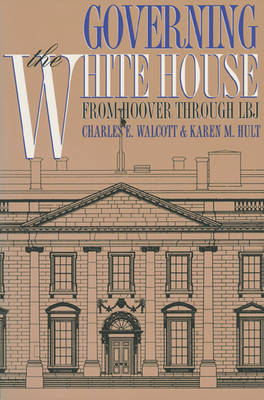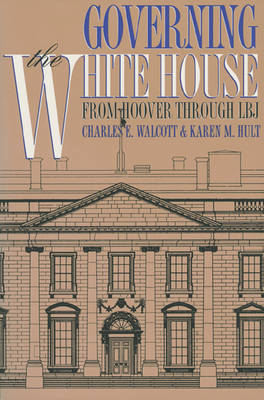
- Retrait gratuit dans votre magasin Club
- 7.000.000 titres dans notre catalogue
- Payer en toute sécurité
- Toujours un magasin près de chez vous
- Retrait gratuit dans votre magasin Club
- 7.000.0000 titres dans notre catalogue
- Payer en toute sécurité
- Toujours un magasin près de chez vous
64,45 €
+ 128 points
Description
Charles Walcott and Karen Hult maintain that the organization of the White House influences presidential performance much more than commonly thought and that organization theory is an essential tool for understanding that influence. Their book offers the first systematic application of organizational governance theory to the structures and operations of the White House Office. Using organizational theory to analyze what at times has been a rather ad hoc and disorganized office might seem quixotic. After all, the White House Office exists within a turbulent political environment that encourages expedient decision-making. And every four to eight years it must be "reinvented" by presidents who have their own theories and preferences about how to organize a staff to serve their policy needs. But Walcott and Hult argue that White House staffs are not simply puppets of presidential preference and style. Yes, staff structures evolve primarily from presidents' strategic responses to external demands. But those structures in turn significantly influence how the executive branch perceives and responds to further demands. The first part of their book lays out the theoretical argument. The second examines White House "outreach" congressional liaison, press relations, personnel selection, executive branch oversight, and interest group and intergovernmental liaison. The third focuses on White House handling of policy development and implementation. The fourth analyzes staff structures that facilitate the operation of the presidency itself: presidential writing and scheduling, staff management, and cabinet coordination. The book concludes by identifying general patterns in the emergency, nature, and stability of governance structures in the White House. Original and instructive, Governing the White House provides a much-needed primer on the inner workings of the White House staff and will be an essential volume for anyone studying the presidency.
Spécifications
Parties prenantes
- Auteur(s) :
- Editeur:
Contenu
- Nombre de pages :
- 382
- Langue:
- Anglais
- Collection :
Caractéristiques
- EAN:
- 9780700606894
- Date de parution :
- 25-05-95
- Format:
- Livre broché
- Format numérique:
- Trade paperback (VS)
- Dimensions :
- 154 mm x 229 mm
- Poids :
- 571 g

Les avis
Nous publions uniquement les avis qui respectent les conditions requises. Consultez nos conditions pour les avis.






